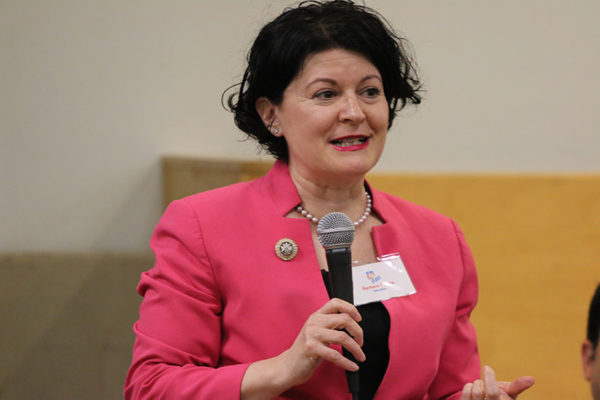(Updated at 4:50 p.m.) A bill prohibiting school officials from stigmatizing students who can’t afford school meals or pay off their debts is likely to pass the Virginia General Assembly, said bill sponsor state Sen. Barbara Favola (D-31).
The SB 840 bill, which has already passed through the Virginia Senate, will ban school board employees from identifying students who owe a meal debt by, for example, requiring students to wear bracelets or hand stamps.
The bill also prohibits school board members from making students do chores or work to pay for meal debts. It also states that any communication about a meal debt must be written in a letter to the student’s parents to bring home.
“We want students to have as positive an experience as possible while they’re in school,” Favola said. “It doesn’t send the right message to children if they’re at all identified for being different because of an income inequality.”
Favola represents Virginia’s 31st District, which includes Arlington and Fairfax County.
A Virginia social justice group, Social Action Linking Together (SALT), approached Favola to sponsor the bill. After other constituents voiced similar concerns about the treatment of students with meal debts, Favola introduced the bill to the Senate.
One Arlington parent told John Horejsi, a SALT coordinator, that their child’s elementary school puts orange stickers on students’ shirts when they owe a lunch debt. The parent discussed the matter with ARLnow.com but did not wish to identify the school or speak on the record.
An Arlington Public Schools spokesman said that practice is not in place at public schools in Arlington.
“To our knowledge, this hasn’t happened in APS in a number of years,” said Frank Bellavia, via email. “Currently, staff only speak with parents directly about a student’s unpaid lunch account. Our Food Services staff is working now on a formal policy for School Board approval that will permanently address this.”
The state bill is highly likely to pass, Favola said, because a companion bill unanimously passed in the House. The bill is now being reviewed by the Committee on Education.
A similar piece of legislation was introduced to the U.S. House of Representatives last May, and a similar bill also passed in New Mexico last April.
File photo


